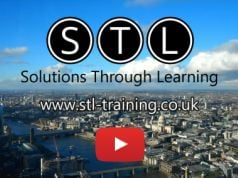98.7% Of all customers recommend us, we're so confident about our results we publish all reviews and stats
View Live Stats View Reviews
 Communication Skills for High Pressure Teams
Communication Skills for High Pressure Teams
Face to face / Online public schedule & onsite training. Restaurant lunch included at STL venues.
From £760 List price £965
- 2 days Instructor-led workshop
- Courses never cancelled
- Restaurant lunch
Syllabus
Who is this course for?
This two-day communications workshop is suitable for front-line teams dealing regularly with difficult groups of stakeholders. This course would benefit HR, customer service or sales departments and any group of people who deal with customer issues daily.
Benefits
This workshop combines fundamentals of emotional intelligence and behavioural styles analysis with practical communication strategies to equip teams with the tools and techniques needed to deal with difficult stakeholders, unrealistic expectations and conflict. Although the focus is on managing external relationships, the workshop also facilitates communication within the team to encourage support and shared values, and to enable the team to deal with communication issues together.Course Syllabus
Day 1
Introduction
Hierarchy of values - identifying personal and team values
Discussion of current problems/barriers/issues with communication
Understanding your personal communication style
Aggressive/passive characteristics
What is assertiveness?
Triggers and responses
Going deeper - understanding emotional intelligence
Feelings, perceptions and beliefs
Understanding your reactions under stress and conflict
Understanding transactional analysis
Building resilience
ABCDE technique for choosing your emotions
Communication styles and understanding others
Communication styles model
Identifying preferred styles
Recognising others' communication styles
Looking for and recognising communication cues
Empathy
Day 2
Review Day 1
What did you notice about yourself and your emotional reactions?
What did you notice about others?
Adapting communication style as required
Ensuring your message is perceived as intended
Phrasing your message appropriately
Influence and persuasion
Assertive techniques
Giving and receiving feedback
Expectation setting/contracting
Effective conversation techniques: questioning and listening
Conflict management
Recognising your hot buttons
Dealing with difficult situations
Dealing with negative or aggressive behaviour
Summary
Reflect on and align team values going forward
Prices & Dates
What you get
"What do I get on the day?"
Arguably, the most experienced and highest motivated trainers.
Face-to-face training
Training is held in our modern, comfortable, air-conditioned suites.
Lunch, breaks and timing
A hot lunch is provided at local restaurants near our venues:
- Bloomsbury
- Limehouse
Courses start at 9:30am.
Please aim to be with us for 9:15am.
Browse the sample menus and view joining information (how to get to our venues).
Refreshments
Available throughout the day:
- Hot beverages
- Clean, filtered water
- Biscuits
Online training
Regular breaks throughout the day.
Learning tools
In-course handbook
Contains unit objectives, exercises and space to write notes
24 months access to trainers
Your questions answered on our support forum.
Training formats & Services
Training Formats & Services
|
Learning & Development Resources
Soft Skills Blog
- How to Build your Resilience Under Pressure
- 5 Key Stages to a High Performing Team
- Developing Your Team For High Performance
- Effective Communication: Having Difficult Conversations
- Improve your communication skills with these 7 tips
- Speak Up with Confidence: Guide to Assertive Communication
- Effective Communication Skills. 3 tips to address Conflict
Training manual sample
Below are some extracts from our Communication Skills for High Pressure Teams manual.
Communication skills are critical for high pressure
teams to function effectively and achieve their goals.
Effective communication in high pressure
teams requires a combination of clarity, emotional intelligence, adaptability,
and strong feedback mechanisms.
By fostering these skills, teams can
navigate stressful situations more effectively, maintain high performance, and
achieve their objectives even under pressure. Regular practice, training, and a
supportive environment are key to developing and sustaining these communication
skills.
Here are the key communication skills
needed in high pressure environments:
·
Schedule regular check-ins to keep everyone
informed and aligned.
·
Clear Protocols: Establish clear communication
protocols for emergencies and critical updates.
·
Role Clarity: Ensure everyone understands their
roles and responsibilities to minimize confusion.
·
Feedback Loops: Create feedback loops to
continuously improve communication practices.
·
Training: Provide communication skills training
tailored to high-pressure environments.
·
Clear Messaging: Ensure that instructions,
feedback, and information are clear and unambiguous.
·
Active Listening: Pay complete attention to the
speaker, without interruptions.
·
Emotional Intelligence and Empathy: Understand
and share the feelings of team members, especially during stressful times.
·
Assertiveness: Communicate your ideas and
concerns confidently without being aggressive.
·
Boundary Setting: Clearly set and respect
boundaries
·
Adaptability: Adjust communication styles based
on the situation and the individuals involved.
·
Responsiveness: Quickly respond to changes and
new information in a fast-paced environment.
·
Conflict Resolution: Facilitate discussions to
resolve conflicts amicably.
·
Problem-Solving: Focus on finding solutions
rather than placing blame.
·
Transparency & Openness: Share information
openly and honestly with the team.
·
Trust-Building: Foster a culture of trust
through transparent communication.
·
Non-Verbal Communication: Use positive body
language to support verbal communication.
·
Time Management & Prioritisation:
Communicate priorities clearly to ensure critical tasks are addressed first.
·
Technical Proficiency: Be proficient in using
communication tools and platforms (e.g., Slack, Microsoft Teams) effectively.
Thanks. Your download will begin shortly.
Please help us
Share or create a link to this manual today!
Just follow these simple instructions...







